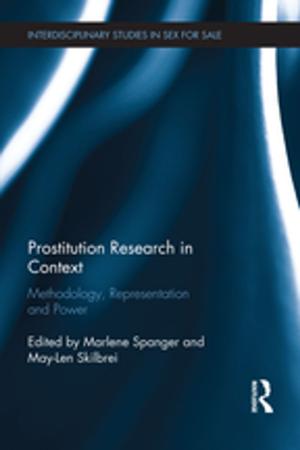From Georges Sorel
Essays in Socialism and Philosophy
Nonfiction, Social & Cultural Studies, Political Science, Government, Communism & Socialism, Religion & Spirituality, Philosophy| Author: | Georges Sorel | ISBN: | 9781351310703 |
| Publisher: | Taylor and Francis | Publication: | January 16, 2018 |
| Imprint: | Routledge | Language: | English |
| Author: | Georges Sorel |
| ISBN: | 9781351310703 |
| Publisher: | Taylor and Francis |
| Publication: | January 16, 2018 |
| Imprint: | Routledge |
| Language: | English |
The prophet of social decadence, the theorist of violence and advocate of the general strike, the critic who stood Marx on his head, Georges Sorel was one of the foremost writers of this century to write extensively on the great importance of the moral aspects of social movements. His reconstruction of socialist ethics established him as one of the most remarkable critics of Marxist thought, and his writings in many aspects anticipated contemporary interpretations.
From Georges Sorel, the first of two volumes of Sorel's work, presents his major contributions to social thought articles on Marxism, religion, syndicalism, social myths, the philosophy of history and science, as well as a large and newly translated segment of "Reflections on Violence." In his introduction, John Stanley disputes the frequently encountered view of Sorel as a reactionary or extreme rightist, and emphasizes Sorel's attempt to provide Western society with a morality based on labor, struggle, and family life.
The prophet of social decadence, the theorist of violence and advocate of the general strike, the critic who stood Marx on his head, Georges Sorel was one of the foremost writers of this century to write extensively on the great importance of the moral aspects of social movements. His reconstruction of socialist ethics established him as one of the most remarkable critics of Marxist thought, and his writings in many aspects anticipated contemporary interpretations.
From Georges Sorel, the first of two volumes of Sorel's work, presents his major contributions to social thought articles on Marxism, religion, syndicalism, social myths, the philosophy of history and science, as well as a large and newly translated segment of "Reflections on Violence." In his introduction, John Stanley disputes the frequently encountered view of Sorel as a reactionary or extreme rightist, and emphasizes Sorel's attempt to provide Western society with a morality based on labor, struggle, and family life.















